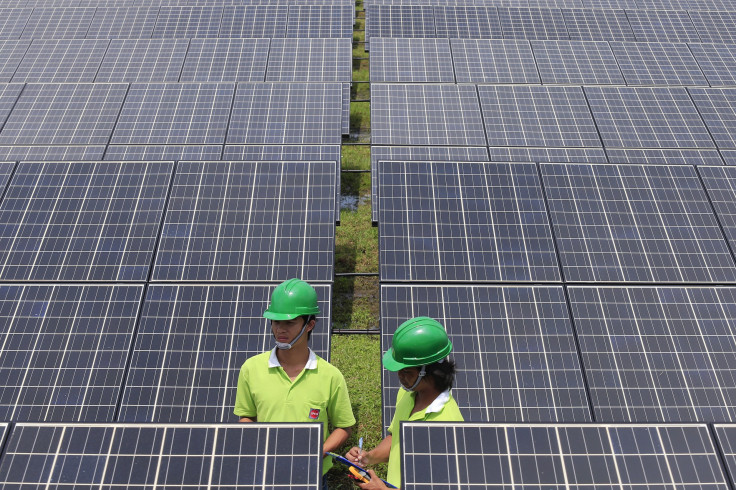Thailand Solar Energy: Government Subsidy Spurs Investment Frenzy

Thai energy companies will invest up to $2 billion in the solar energy industry over the next five years, as the government incentivizes solar projects to provide power for Southeast Asia’s second-largest economy.
"Solar is hot," said Wandee Khunchornyakong, CEO of SPCG, Thailand’s largest solar farm, according to Reuters. "It's undeniable that everyone wants to enter this business."
SPCG will make a net profit of 10 million Thai baht ($319,400) per megawatt this year, at least four times that of traditional power producers. The Thai government is increasingly buying electricity from solar power producers at a premium now that fossil fuel prices have gone up. And companies like Utility Electricity Generating Pcl (EGCO) and refiner Bangchak Petroleum Pcl are among the traditional energy companies hoping to ride the wave and expand into solar.
Solar already performed well for Bangchak, part of state-controlled PTT Pcl, with earnings of the company’s solar business jumping 150 percent year-on-year in the third quarter. The technology now accounts for 15 percent of its core quarterly profit of 2.6 billion baht. The company plans to raise its solar capacity to 169 megawatts by next year from the 94 MW this year, and it hopes to further boost that number to 500 MW by 2020.
Bangchak and other solar producers are already getting paid up to eight baht per kWh for the 1,445 MW they have contracted to sell to the state grid. The government also launched a project in September to buy solar power from households and factories that would be willing to install solar photovoltaic panels on their roofs for nearly seven baht per kilowatt-hour, much higher than the four baht per kWh that electricity generated by gas-fired power stations receive.
Even with the extra cash the government is paying solar power is cheaper than what new power from conventional sources would cost with hikes in oil and gas prices.
"The government has made it very attractive to enter the sector now," said Itphong Saengtubtim, analyst at KGI Securities, according to Reuters. "But for solar farms, there are some risks as we don't know when the government will issue more new licenses. And, future projects' return on investment may fall because the government may not offer high rates to buy solar power as high as it is offering now."
Overall, Thailand is planning to triple its solar power capacity to 3,000 MW by 2021, when renewable energy will be expected to account for a quarter of the country’s energy mix, up from 8 percent now. By that time, an estimated one fifth of renewable energy will come from solar power. There is a $144 million solar farm under construction in Thailand’s east and northeast provinces, according to Bangchak president Vichien Usanachote.
Thai companies’ shift to solar panel presents opportunities for international companies involved in the sector. Japan’s Kyocera Corp and China’s Suntec Power Holdings Co Ltd. both want in to make up for weak global prices due to oversupply, Reuters reported.
© Copyright IBTimes 2024. All rights reserved.




















